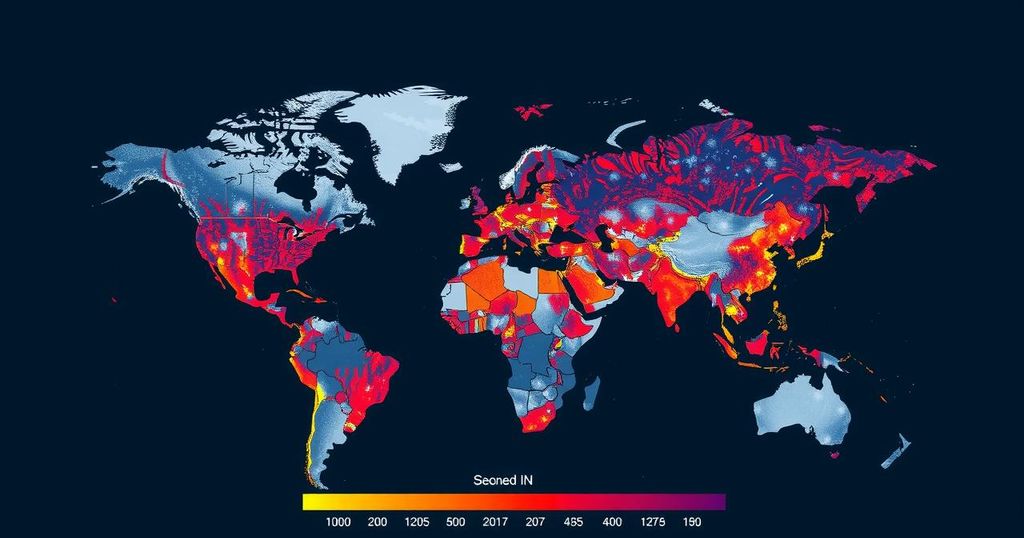Extreme Weather Inflicts $2 Trillion Losses Globally, Urging Action at Cop29 Summit

A report reveals that extreme weather caused $2 trillion in damages over the past decade. With $451 billion in losses recorded in the last two years alone, discussions at the Cop29 summit emphasize the need for financial support from wealthy nations to help poorer countries combat climate impacts.
A recent report has unveiled the staggering financial toll of extreme weather, reflecting a cumulative cost of $2 trillion over the past decade. This analysis, encompassing 4,000 climate-related incidents, indicates that economic damages reached $451 billion in just the last two years. The increasing severity of weather events has prompted intense discussions among global leaders at the Cop29 climate summit regarding financial obligations of affluent countries towards developing nations. John Denton, Secretary-General of the International Chamber of Commerce, emphasized the immediacy of climate change impacts, stating, “The data from the past decade shows definitively that climate change is not a future problem. Major productivity losses from extreme weather events are being felt in the here and now by the real economy.” The report highlights a worrying trend, with escalating costs attributed to extreme weather events from 2014 to 2023. Illustrating the disproportionate impact of such events, the United States incurred the highest losses at $935 billion, followed by China and India with losses of $268 billion and $112 billion, respectively. It was noted that small island nations suffered the greatest losses per capita. Moreover, the financial repercussions of climate change are anticipated to grow as human activity continues to fuel extreme weather. A study conducted last year suggested that climate change was responsible for over half of the 68,000 heat-related fatalities during the intense European summer of 2022. However, it should be noted that many vulnerable countries, particularly in Africa, may be experiencing even greater losses that remain unquantified. Ilan Noy, a disaster economist not involved in the ICC report, pointed out that the data may not encapsulate the true extent of impacts in impoverished communities, stating, “Clearly, the losses of homes and livelihoods in a poor community in poor countries are more devastating in the longer term than losses in wealthy countries where the state is able and willing to assist in recovery.” Denton further articulated that financing climate action in developing nations should be perceived not as an act of charity but as an investment, noting, “Every dollar spent is, ultimately, an investment in a stronger and more resilient global economy from which we all benefit.”
The report serves as a critical analysis of the financial losses attributed to extreme weather phenomena driven by climate change over the past decade. As world leaders convene at the Cop29 climate summit, the urgency for financial support to assist poorer nations in combating climate impacts and transitioning to more resilient economies is highlighted. The ongoing discussion emphasizes the need for substantial financial commitment from wealthier nations to address both immediate recovery efforts and long-term developmental strategies.
In summary, the report underscores the urgent need for international cooperation in addressing the financial impacts of climate change. The broad economic damages resulting from extreme weather events demonstrate that climate change is an immediate challenge affecting global economies. Efforts to assist vulnerable nations are essential not only for justice but also as a prudent investment in a resilient global economy.
Original Source: www.theguardian.com





